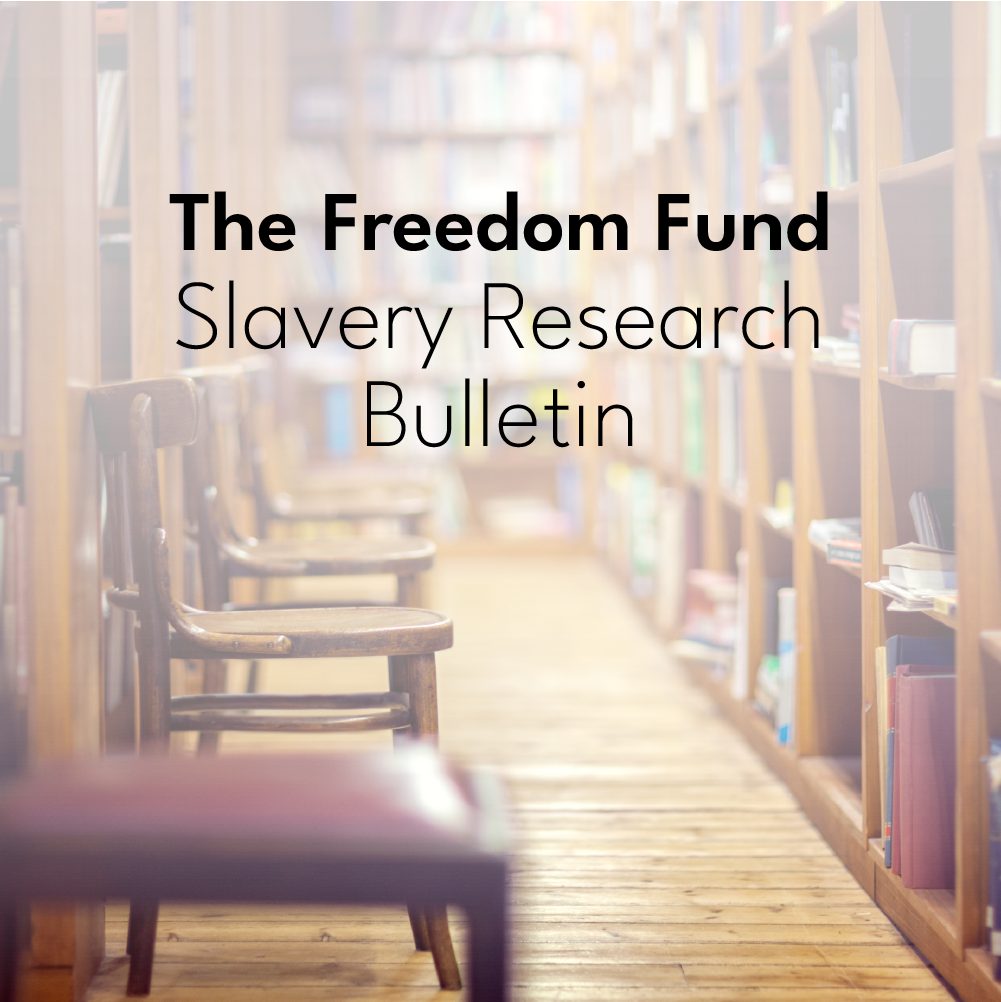The following news items were published by the Freedom Fund, a global anti-trafficking Fund which conducts regular research and lobbying of policy makers to drive systemic change against trafficking, as well as partnering with frontline organisations to fight modern slavery in its many forms. More information can be found on their website.
| Experts urge the inclusion of people with lived experience in modern slavery research The Freedom Fund, the Global Fund to End Modern Slavery, and the Modern Slavery and Human Rights Policy and Evidence Centre released a joint post-conference report. The ‘Equity in Evidence’ conference brought together 93 anti-trafficking experts from 30 countries to discuss the necessity of involving people with lived experience in modern slavery research. The report outlines good practices for collaborating with slavery-affected communities, including the principle of equal partnerships between researchers and people with lived experience for mutual learning and effective solutions to tackle slavery. |
| The impact of education interventions on child workUNICEF Innocenti published a rapid evidence assessment report (REA) examining the impact of educational policies and programs on child work and child labour in low- and middle-income countries. The REA covered 29 published studies, including 10 experimental studies (all randomised control trials) plus 11 quasi-experimental studies. It found that scholarships and educational remittances considerably reduced the likelihood of children working – but it depended on the program design. For example, only scholarships above a certain amount, or provided in combination with other cash transfers, proved to be effective. |
| Survivors’ choice not to disclose as a form of agencyUniversity of Victoria in Canada conducted a systematic review of 25 studies to explore the reasons for non-disclosure by female survivors of child sexual violence. Children often chose not to disclose sexual violence to protect themselves from further abuse and harm. Studies from Ethiopia, Nigeria, South Africa, Tanzania and Zimbabwe have shown that girls who report sexual violations risk being blamed, physically punished, disowned by family, forcefully married, or even killed. The study highlighted a significant gap in engaging survivors as co-creators in research on violence and acknowledging children’s agency. |
| Evaluating the effect of awareness-raising on irregular migration in West AfricaThe International Organization for Migration (IOM) measured the impact of awareness-raising activities on irregular migration in Gambia, Guinea, Nigeria and Senegal. The cluster randomised controlled trial involved a total of 13,968 individuals aged 17 to 30 to assess knowledge, perceptions, intentions, and attitudes on irregular migration. Improved perceptions of risks associated with physical injuries, illness, or death related to irregular migration were observed in Gambia, Guinea and Senegal. However, the study did not find that the intervention had a statistically significant effect on young people’s intention to migrate irregularly. |
| Heightened risk of statelessness among children born to migrant domestic workers in LebanonResearchers from the University of Melbourne examined the risk of statelessness among children born to migrant domestic workers in Lebanon. The study reviewed nationality and birth registration laws in Bangladesh, Ethiopia, Lebanon, Nepal and the Philippines, supplemented by 13 informant interviews. Lebanon’s kafala system, inability to speak the local language, cost and time barriers were cited as main reasons why migrant workers did not register the birth – leading to their children’s statelessness. Gender-discriminatory provisions in nationality laws, particularly in Bangladesh and Nepal, created further obstacles for women to transfer their nationality to their children. |

.png)





